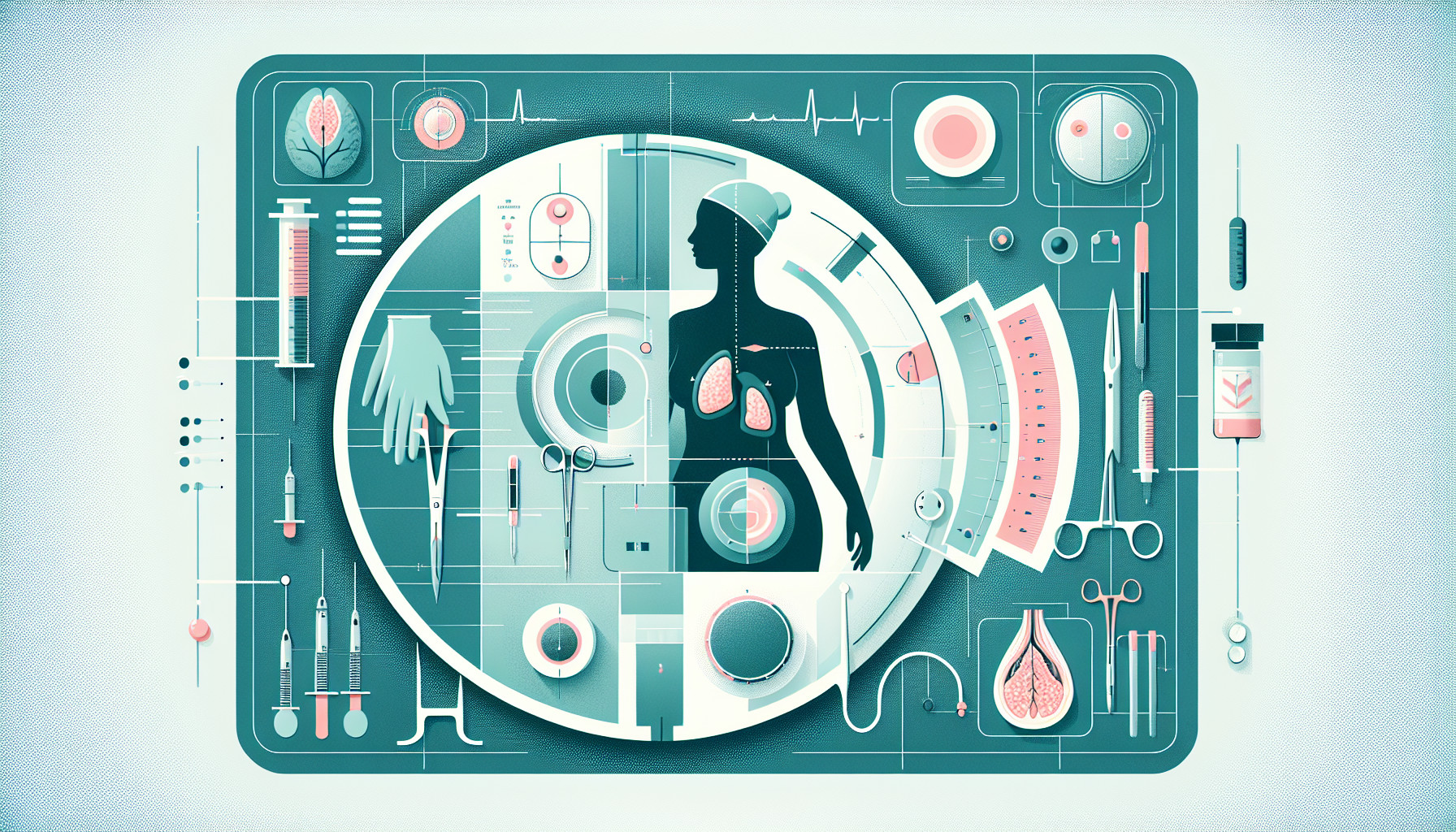Our Summary
This study looked at patients who had a two-stage breast reconstruction procedure at Yale New Haven Hospital between 2011 and 2017. It wanted to see if there were any differences in complication rates between those who had the procedure as a preventative measure (prophylactic mastectomies) and those who had it as a treatment for breast cancer (therapeutic mastectomies). The study found that there were no significant differences in complications overall, but patients who had therapeutic mastectomies were nearly 10 times more likely to experience a particular complication known as mastectomy flap necrosis. The researchers believe this may be due to differences in the surgical techniques used, but further research is needed to confirm this.
FAQs
- What was the main objective of the study conducted on patients at Yale New Haven Hospital between 2011 and 2017?
- Did the study find any significant differences in complication rates between prophylactic and therapeutic mastectomies?
- Why might patients who had therapeutic mastectomies be more likely to experience mastectomy flap necrosis according to the study?
Doctor’s Tip
A helpful tip a doctor might give a patient about mastectomy is to carefully follow post-operative care instructions to reduce the risk of complications such as mastectomy flap necrosis. This may include proper wound care, avoiding strenuous activities, and attending follow-up appointments with your healthcare provider. It is also important to communicate any concerns or changes in your recovery process to your healthcare team.
Suitable For
Patients who are typically recommended mastectomy include:
Patients with a high risk of developing breast cancer, such as those with a strong family history of the disease or carrying a BRCA gene mutation, may undergo prophylactic mastectomy to reduce their risk.
Patients with a diagnosis of breast cancer may undergo therapeutic mastectomy as part of their treatment plan, either as a standalone procedure or in combination with other treatments such as chemotherapy or radiation therapy.
Patients with large tumors or tumors in multiple areas of the breast that are not suitable for breast-conserving surgery (such as lumpectomy) may also be recommended for mastectomy.
Patients with a history of previous breast cancer who develop a new cancer in the same breast may also be recommended for mastectomy to remove all remaining breast tissue and reduce the risk of recurrence.
Overall, the decision to undergo mastectomy is a complex one that should be made in consultation with a multidisciplinary team of healthcare providers, including surgeons, oncologists, and genetic counselors, to ensure that the best treatment plan is chosen for each individual patient.
Timeline
Before mastectomy:
- Diagnosis: The patient receives a breast cancer diagnosis or decides to undergo a prophylactic mastectomy due to a high risk of developing breast cancer.
- Consultation: The patient meets with their medical team to discuss treatment options, including the possibility of a mastectomy.
- Pre-operative preparations: The patient undergoes pre-operative tests, consultations with plastic surgeons (if considering breast reconstruction), and mental preparation for the surgery.
- Mastectomy surgery: The patient undergoes the mastectomy procedure, which involves the removal of one or both breasts.
After mastectomy:
- Recovery: The patient spends time recovering in the hospital or at home, following post-operative care instructions provided by their medical team.
- Follow-up appointments: The patient attends follow-up appointments to monitor healing and address any complications that may arise.
- Breast reconstruction: If desired, the patient may undergo breast reconstruction surgery to restore the appearance of the breasts.
- Emotional support: The patient may seek emotional support from counselors, support groups, or loved ones to cope with the physical and emotional changes following the mastectomy.
- Long-term monitoring: The patient continues to receive regular check-ups and screenings to monitor for any signs of recurrence or complications.
Overall, the patient undergoes a series of emotional and physical experiences before and after a mastectomy, which can have a significant impact on their quality of life and well-being.
What to Ask Your Doctor
Some questions a patient should ask their doctor about mastectomy include:
- What are the reasons for recommending a mastectomy in my case?
- What are the potential risks and complications associated with mastectomy?
- What type of mastectomy procedure will be performed in my case (e.g. total mastectomy, partial mastectomy)?
- Will I need to have lymph nodes removed during the mastectomy?
- What is the expected recovery time after mastectomy?
- What are the potential long-term effects of mastectomy?
- Will I have the option for breast reconstruction after the mastectomy?
- What are the different types of breast reconstruction options available to me?
- How will a mastectomy affect my future breast cancer screening and surveillance?
- Are there any specific lifestyle changes or precautions I should take after undergoing a mastectomy?
Reference
Authors: Chouairi F, Gabrick KS, Avraham T, Markov NP, Alperovich M. Journal: Plast Reconstr Surg. 2019 Apr;143(4):682e-687e. doi: 10.1097/PRS.0000000000005423. PMID: 30730496
